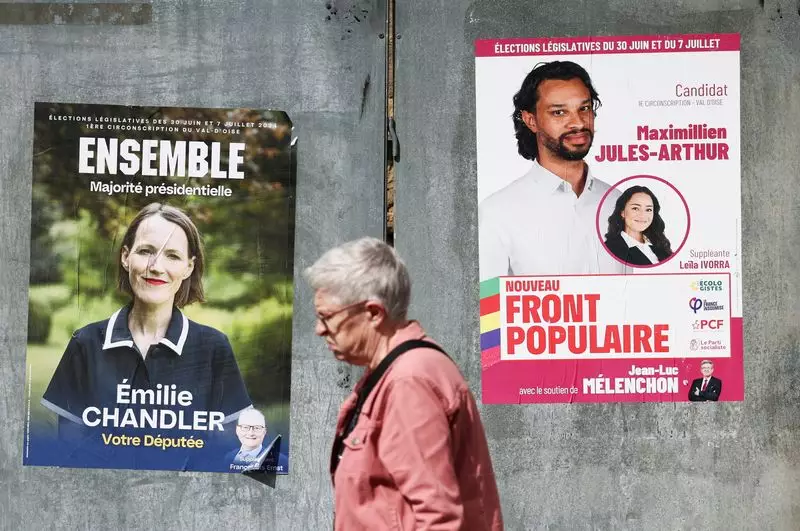France is witnessing a political reshuffle as political parties rush to establish alliances following President Emmanuel Macron’s unexpected decision to hold a parliamentary election. This move has resulted in the division of the political landscape into three major blocs. These include the far-right National Rally, the leftwing New Popular Front, and Macron’s centrist coalition known as ‘Together.’
One of the significant players in the upcoming election is Marine Le Pen’s eurosceptic party, the National Rally. While the party is likely to secure a substantial number of seats in the National Assembly, it may not attain an absolute majority. In a strategic move, the National Rally has formed an alliance with Eric Ciotti, who previously headed the conservative Republicans. However, Ciotti faced backlash from his party members for collaborating with the far-right party.
On the other end of the political spectrum is the New Popular Front, a leftwing alliance that has gained traction among progressive voters. This bloc has put forward an agenda that focuses on social welfare, environmental protection, and economic equality. The New Popular Front aims to challenge the dominance of centrist and right-wing parties in the parliament by appealing to voters disillusioned with the current political landscape.
Meanwhile, President Macron’s centrist alliance, ‘Together,’ occupies a central position in the political arena. Macron, known for his pragmatic policies and pro-European stance, has managed to garner support from moderate voters across the country. ‘Together’ presents itself as a unifying force that seeks to bridge the gap between the left and the right, offering a middle-ground approach to governance.
As the second round of voting approaches, each political bloc has outlined its campaign pledges and strategies to sway voters. From promises of economic revitalization to commitments to upholding national sovereignty, the parties are vying for support by addressing key issues facing the country. The outcome of the parliamentary election is poised to determine the future direction of French politics, with the balance of power hanging in the balance.
The formation of political alliances in France has injected a new dynamic into the electoral landscape, with three major blocs vying for control of the National Assembly. The competing visions and strategies put forth by the far-right National Rally, the leftwing New Popular Front, and President Macron’s centrist alliance reflect the diverse political preferences of the French electorate. As voters head to the polls, the outcome of the election remains uncertain, paving the way for a potential shift in the country’s political trajectory.

